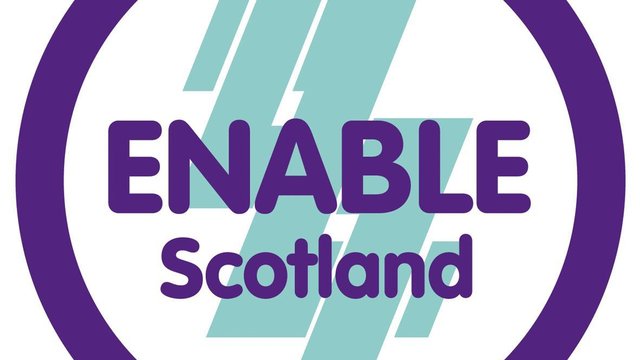Children With Learning Disabilities 'Sidelined' In Mainstream Schools
8 December 2016, 07:14

Teaching children with learning disabilities in mainstream schools can leave youngsters feeling ''sidelined'' while teachers feel ''untrained, unsupported and stressed'', campaigners have claimed.
Charity Enable Scotland has told ministers it is ''time to talk about the elephant in the room'' as it published a new report that revealed 60% of children with a learning disability feel lonely at school, while 67% have been bullied.
Almost half (48%) of affected children do not get the same chances to take part in playground games, according to the research, with nearly a quarter (23%) not allowed on school trips.
Meanwhile 98% of education staff said their initial training had failed to prepare them for teaching youngsters with additional support needs, including learning disabilities, with 62% of teachers suffering stress because they do not have the right support.
Enable Scotland spoke to 800 young people with learning disabilities, parents and education professionals for the research.
The report detailed 22 steps it wants the Scottish Government to take to bring about a ''systemic change'' in the education system for the 15,000 pupils with learning disabilities.
It wants the school inspection system to be used to tackle ''informal exclusions'' from school, after 40% of parents and carers said this had happened to their child.
More training on how to support youngsters needs to be included in teacher training, programmes for head teachers and continuing professional development, it added.
Enable Scotland is also urging the Scottish Government and local government body Cosla to set up a commission looking at the role of classroom assistants.
The charity published its Included in the Main report ahead of a demonstration outside the Scottish Parliament on Thursday, where campaigners will be accompanied by a giant inflatable elephant.
Jan Savage, Enable Scotland's executive director of campaigns and external affairs, said: ''It's time to talk about the elephant in the room and confirm what most teachers, parents and children have said privately for a very long time. The presumption to mainstream policy was designed to deliver inclusion - it hasn't.
''It has resulted in more children being educated in the same classroom, which is an important first step. But 16 years on, we can also now see that it has taken specialist expertise out of the Scottish education system, and left young people who have learning disabilities sidelined.
''Pupils have told us that they feel bullied, isolated and excluded. Parents have told us they feel frustration that the system is not working. And, importantly, teachers feel untrained, unsupported, and stressed.
''Eight hundred people have spoken to Enable Scotland about how they feel. It's time to listen, take stock, and then act to ensure that we are getting it right for every child, in every classroom, in Scotland.''
She said the introduction of the presumption to educate children in mainstream schools had been a ''huge step'' but there had been ''a gradual and systematic reduction in all the specialist support that is needed to underpin that policy, like training, and access to specialist in-school support''.
Ms Savage said: ''The result of this lack of investment is the elephant in the room - a struggling system that is leaving pupils who have learning disabilities isolated and lonely, and teachers who feel that they are not able to support them.
''For the sake of the next generation of children who have learning disabilities and other support needs, it's time for Scotland to take action to address these failings.''
A Scottish Government spokeswoman said: ''The Scottish Government is currently reviewing the guidance on the presumption of mainstreaming, which will support local authorities in their decision making for children and young people.
''The guidance will focus on the individual needs of the child or young person by bringing together a number of Scottish Government policies including 'Getting it Right For Every Child', the presumption of mainstreaming and Additional Support for Learning legislation.
''The guidance will also focus on the experiences that children and young people have in school, their opportunities for participation, to develop and build friendships and relationships and to be part of school life.
''We will be considering a range of evidence as part of this review and will be engaging with Enable as part of that work. Our aim is to produce guidance for consultation early in 2017.''






